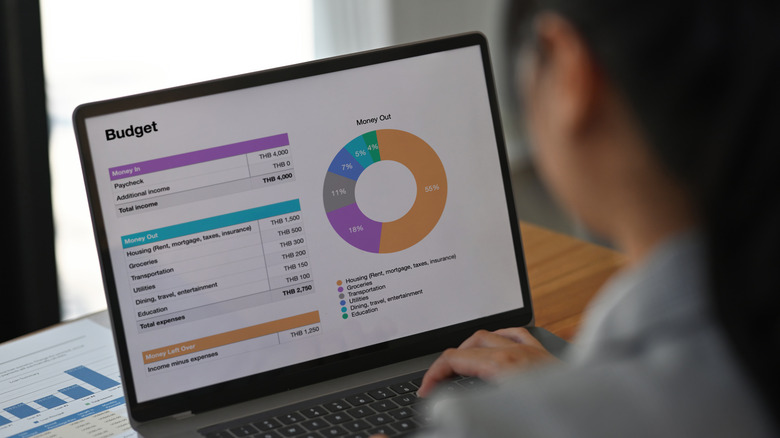If You Want To Be A Millionaire By 65, Your Savings Contribution Should Be Above This Number
Having a million dollars saved in retirement is a milestone and certainly enough to spend your golden years comfortably when you factor in other sources of income. But reaching that milestone does not happen overnight and takes years of discipline and steady savings. In order to hit retirement goals with your 401(k), "make sure you put 15% away," millionaire and "Shark Tank" investor Kevin O'Leary shared in a Good Morning America interview. "Because it compounds with market returns of 6% to 8%. You must invest 15%." Contributing less could be a 401(k) mistake that costs you a fortune.
With the median full-time salary sitting at $66,622, according to SoFi, a 15% pre-tax contribution towards a 401(k) retirement would amount to $833 per month or almost $10,000 a year. Keeping this level of contribution from the age of 27 — the average age Americans think you should begin to save for retirement, according to Empower – you would have $1.7 million in savings by the age 65, and that's with a 7% rate of return and without adjusting for wage growth or bonuses. With this level of contribution, you would also hit millionaire status by the age of 58, according to BankRate's 401(k) calculator. At that age, the median 401(k) balance sits at $95,425, according to BankRate.
Not investing 15% yet? Here's how to get there
Investing 15% of your income is a tall order for anyone and could feel out of reach, but by taking small steps it is attainable. A good place to start with is contributing into an employer sponsored retirement plan. Many times companies offer 401(k) matching and contribute a certain amount to an individuals retirement plan when an employee invests a certain percentage of their pay. This is essentially like earning free money and could boost your investment percentage by a few points. Additionally, employers are also beginning to offer automatic escalations, which raises how much you contribute into your 401(k) every year by a small percentage, and the best part is you most likely may not notice the change in your pay.
With a good baseline, you can then begin adjusting your budget to free up funds and divert them to retirement. Depending on how aggressive you want to invest, you can cancel unused subscriptions, pay down debt, or cut back on eating out. These can be a few examples of areas to cut back that can make a big impact on increasing your investment contributions. The goal with making small cuts isn't about creating a perfect budget but to make steady progress to your investment goals. So in the future, you don't have to worry that you're not financially ready to retire.

